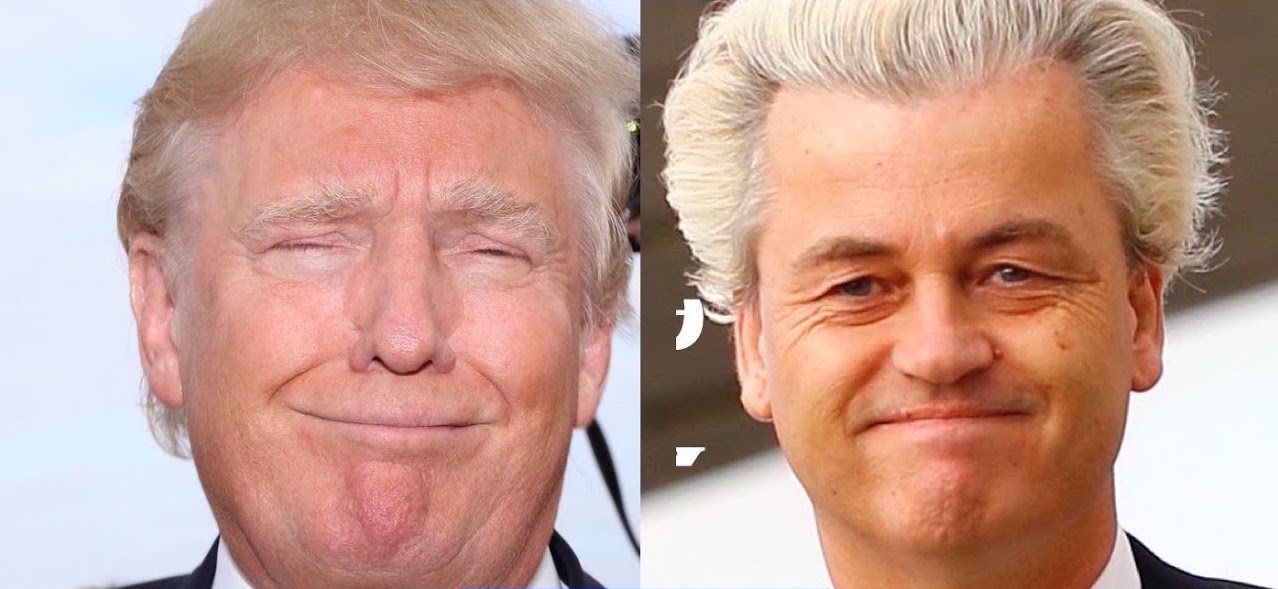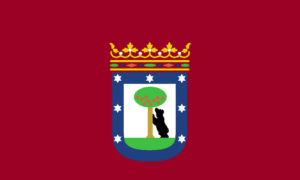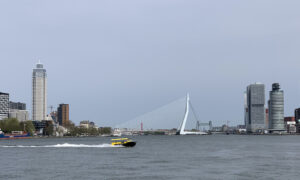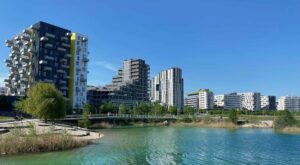(Editor’s note: We’re dedicating this installment of the Eindhoven Business Briefing to the ramifications of the Geert Wilders victory in the Dutch national elections. Dispatches covers tech because so many of our highly skilled internationals are tech executives and innovators.)
When Geert Wilders’ Party of Freedom (PVV) won the Dutch elections on 23 November, I had one thought: “I’ve seen this movie before.”
In one presidential election, the United States went from being a robust post-World War II society where most of us moved forward together to a fractious society weakened by the politics of resentment … grievance politics. That 1981 election of Ronald Reagan still haunts the U.S. to this day. Reagan’s legacy is Donald Trump indulging in language that echos Hitler, tapping into the fears that white dominance is fading.
Grievance politics feeds on the perception that “the Other” is getting more than the majority. That things are changing too quickly and for the worse. Reagan tapped into the grievances of white working class men who resented everything – immigration, the increasing number of blacks and women in the workforce, the increasing automation and along with it, the importance of technical education. The Other was usurping white economic and political power. (Interestingly, the Trumps and Reagans can never quite explain how rich white people still control 96 percent of the American economy, and 75 percent of the seats in the U.S. Congress.)
Urban/rural divide
There are parallels in the Netherlands, with growing resentment on the part of farmers and rural people that they’re being ignored and left behind by the urban elite in this uber-technical society, and that immigrants are corrupting Dutch culture and causing the ongoing housing shortage.
Though the media has dubbed him “the Dutch Trump,” Wilders is far more dangerous than his American counterpart because he wants to strike a death blow against Western unity that dates back to 1945.
Wilders wants the Netherlands to leave the European Union and align with Vladimir Putin. Which is such a great idea!
Even with its oil and mineral wealth, Russia’s GDP per capital of $12,000 is roughly 60 percent of Greece at $20,000 while the EU in aggregate clocks in at $52,000-plus and the Netherlands at $57,800.
Of course, leaving the EU has worked out so well for the United Kingdom. Earlier this year, Bloomberg reported that Brexit costs 100 billion pounds per year. Which is almost irrelevant because the Netherlands long ago left the UK behind.
A comparison of the economies of the UK and the Netherlands is enlightening.
Check out this side-by-side comparison by countryeconomy.com and you’ll see the Netherlands has:
• a higher GDP per capita than the UK – $57,800 to $45,775
• a higher global debt rating
• a higher competitiveness rating
• a higher average wage at about $60,000 to $52,300
The Netherlands, with 17 million people, outperforms the UK, population 67 million, by almost every objective standard.
Nexit … really? Why?
Polarization, not unity
Wilders at his most radical is his vilification of Muslims. His stance is, observant Muslims are fascists corrupting liberal Dutch society by wearing headscarfs. Those who abide by the Qur’an and not by Dutch civil law – who refuse to assimilate – need to leave. Of course, Dutch immigration already has the power to deport lawbreakers and radicals. But Wilders is really targeting internationalists to the applause of the nationalists. People like Turkey-born Dilan Yeşilgöza, who leads the People’s Party for Freedom and Democracy (VVD) that came in second behind the PVV.
People like us.
Dutch tech companies relying on highly skilled internationals already are pushing back. Officials at Europe’s largest tech company, Eindhoven-based ASML, are on record saying the Netherlands needs a “reliable government.” ASML CEO Peter Wennink has said publicly that he fears for the Dutch economy if highly skilled internationals are banned. But populists such as Wilders, Trump and Victor Orbán are not interested in innovation or compromise. That’s not how they think. They only know how to appeal to their bases, feed resentment and thrive off division.
The most troubling element in all this is the Netherlands’ sudden shift toward intolerance, and that will come back to us, the migrants. Because we, too, are the Other.
The good news in all this is, the Netherlands is a parliamentary system. Wilders won 37 seats out of 150, and needs 76 to form a government. The person Wilders appointed to start the coalition building negotiations has already quit after fraud charges against him surfaced. Left, Green and centrist parties loathe him, so the chances Wilders will be prime minister are growing dim.
Still, the size of the PVV victory means resentment and grievances are here to stay. Once you pivot to grievance politics dominating political discourse, the competent, moderate and tolerant leaders start to drop out of the process.
Really, only the business community – and the huge tech sector in particular – can neutralize Wilders and start the process of restoring faith in Dutch institutions and the power of trade before it’s too late.
––––––––––
Read more about the elections here in the New York Times.
Read more about the Netherlands here in Dispatches’ archives.
Co-CEO of Dispatches Europe. A former military reporter, I'm a serial expat who has lived in France, Turkey, Germany and the Netherlands.















